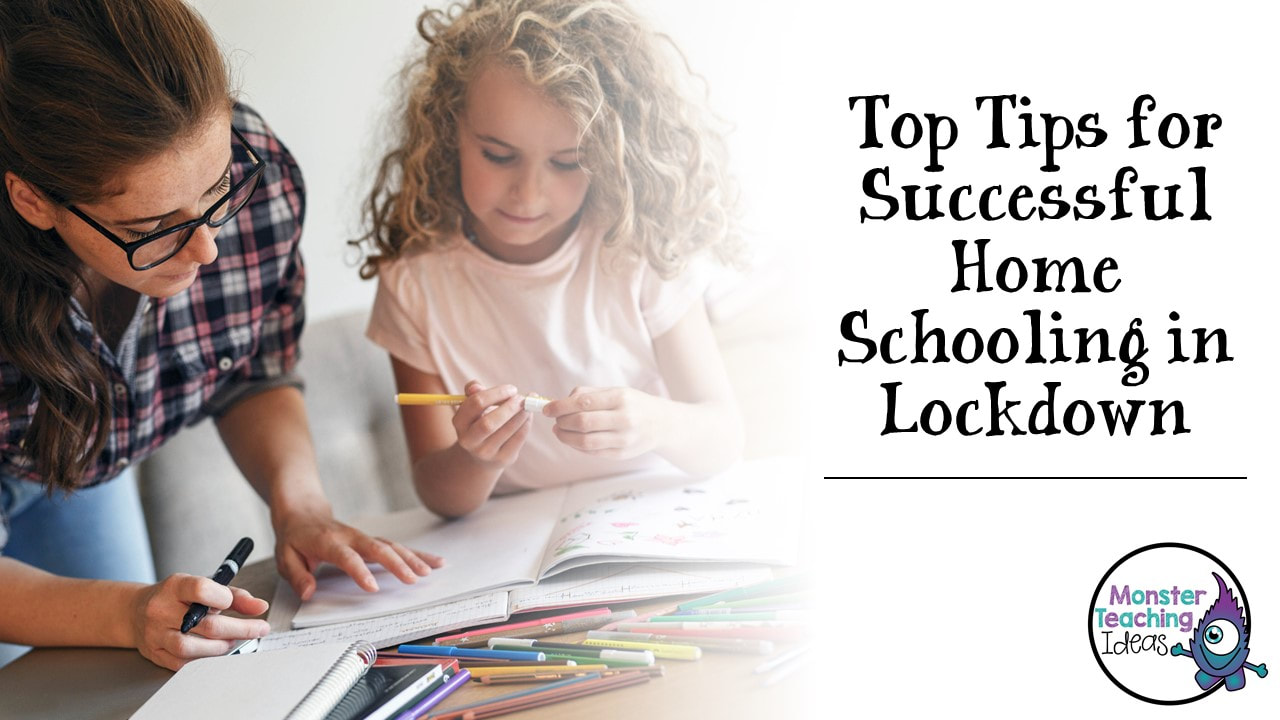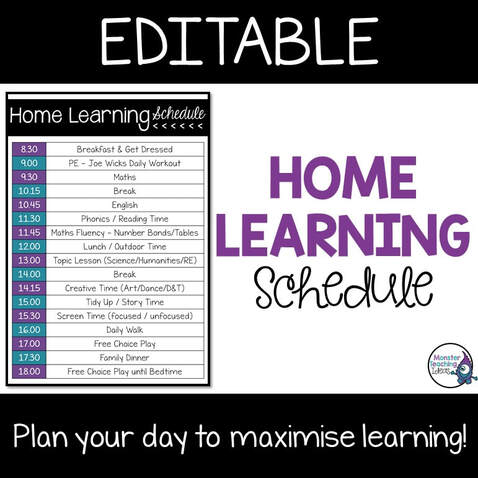|
Well this is a post I never thought I’d be writing. But in times like this, we all need to look out for each other and share our tips and tricks where needed. This post will outline my top tips for coping with schooling your child while they’re at home during the Coronavirus lockdown and how to get the best out of that time. 1. Create a routine Humans are creatures of habit and routines. Indeed, research shows our sensitivity to regularities in our everyday lives is present very early in life. When we can reliably predict what’s going to happen next, our learning is enhanced, and our anxiety levels remain in check. This is the same for adults and children alike. As such, maintaining regular routines as best we can is one way we can feel in control of an otherwise largely uncontrollable situation. With that in mind, I recommend creating a daily schedule. Hopefully, your child’s school has provided you with some learning activities (if not, I will in my next blog post) so these will need to be timetable into your day, but make sure you include time for , self-care, chores, relaxation and most important, fun! Breaks are important. Children don’t work constantly at school; there are break times, assemblies, lesson transitions etc where they can relax a little and not be totally focused on their learning. Given that lessons at home probably won’t take the same amount as time probably as in school because they won’t be listening to the teacher at the front for twenty minutes, you can allow them some extra break time. As parents, it’s important you do what you can to support your child’s learning environment. If your child is not yet school age, engaging together in some structured tasks (for example, drawing, colouring, crafts, etc) will help fuel their developing mind. While everyone’s learning habits are different, learning first thing in the morning might be the best way to get the day on track. To help with that, download my simple, editable Home Learning Schedule – just click below. 2. Set up a learning space
Create an area in the house for your child to be able to focus on learning. There are no clear guidelines on what a learning area should look like. In fact, schools have found creating learning areas or spaces to be a challenge. This is because every child has individual ways of learning, so what works for one may not work for another. Home learning has an advantage in that it can cater to the individual child. As long as the student can focus and be safe, there are no limits to where the learning can take place. Feel free to allow children different places to learn, whether lying on the ground or sitting at a table – whatever works best for them. But try to limit distractions. Turning the TV off and switching off app notifications will help. 3. Be around to help - but don't get in the way Keep checking in with your children as to how they are progressing, offering help as they feel they need it. This is how teachers work continually throughout the day with the 20 to 30 children in their classroom. You don’t have to sit with them constantly. If your child is finding a particular task difficult, be available to make suggestions and answer questions, but try to let them do things themselves as much as possible. You may need to take your child back a step to reinforce a concept before they move onto a new one. An example might be in long division, where reinforcing decimal points, or even subtraction, needs to be revised first. If you don’t know the answer, work with your child to discover a solution, or contact their teacher – they’ll be happy to help or signpost you in the direction of online support. 4. Don't fret about keeping children busy Researchers have long argued that free play is essential to children’s learning. You do not need to be full-time entertainers for your children. Providing children with opportunities to play on their own enables them to explore their environment and hone their creative skills. Free play also allows children the opportunity (yes, opportunity) to become bored, which is also okay. In fact, there are many positive outcomes associated with boredom. Through boredom children learn how to regulate negative emotions that arise when they start to feel bored and learn how to “push through” by seeking out other things to occupy their attention. Being able to cope with negative emotions gives them confidence that they can solve problems. And lastly, when children experience boredom, they get the space they need to use their imagination and form creative ways to entertain themselves. 5. Stay connected Humans are social beings. We seek out new social experiences and become happy when they are found. And this is even more important for children - peer relationships are critical to a child’s social, emotional and cognitive development. Yes, we’re on lockdown, but physical isolation doesn’t have to mean social isolation. You just have to be creative! By taking advantage of video-conferencing technologies such as Zoom, Skype, Google Hangouts FaceTime, or WhatsApp we can keep our social connections active. Arrange “virtual” play dates with friends where the children lead the interaction … you might be surprised how social children can actually be through a video-conferencing interface. You could even go old-school and have your children write letters to friends and family and then post or deliver them in person on their daily walk (while maintaining the social distancing rules of course). 6. Keep active Studies have shown that physical activity is vitally important in maintaining our health and wellbeing. Obviously, we can’t go to the gym and children can’t go to the playground so we must find other ways to stay physically active. If you’ve got a garden, get out there for a run around or you could play hide and seek inside.There are a lot of things out there online too - here are my top 3:
7. Be mindful This is a scary time for us as adults and for children. We’re out of routine, we’re distanced – everything about it feels unnatural and as such, it’s normal to have anxiety about the situation. So here’s some ideas of things to help children stay calm:
8. Make chores a fun family activity Household chores are a part of life and can teach children important life skills. Try and include these in your day. Many studies, including research conducted by our research group, have shown that children are pro-social beings – that is, they are capable of behaviours that benefit or help other people. Even before a child is two, they can share resources, help someone in need and work with others to attain shared goals. Finding ways to use these developing behaviours to complete inescapable household tasks and chores will shorten the days and ensure you don’t have an entire house to clean once the children are in bed! Why not write down a bunch of household tasks on small pieces of paper and put them in a jar? Every day, each person pulls out a task from the jar and then, after a bit of training from mum and dad, everyone went off and did their tasks! You could also add in some fun music to really get into the cleaning spirit! For those with quite young children who cannot be left to their own devices, just give them a duster and chances are, they’ll follow you and lend their own little helping hands. Use this time to do other things like baking or other creative projects. While these tasks will probably not be set by schools, they have enormous value for learning. It's important to remember that this is a whole new situation, for parents, children and teachers a like and we're all doing our best. Be kind to yourself. Don't judge yourself too harshly. At the end of the day, your child won't remember the lessons (although they will hopefully remember the content) or the amount of time spent learning - they'll remember the quality time they got to spend with you. So, aim to make this period as stress-free as possible. When children are happy, the whole household is happy."
1 Comment
|
Hello!I'm Ruth. I'm a teacher based in Manchester, UK.
I've been teaching for eight years and am currently based in Year Four, but I have also taught in Year One and Reception. This blog contains teaching ideas, printables, curriculum, lessons, and activities for your classroom! Make sure to visit often to see the latest blog! Archives
May 2020
Categories
All
|



 RSS Feed
RSS Feed